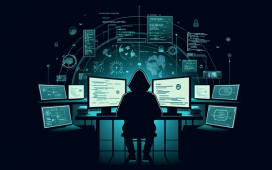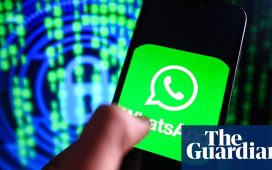With help from Cristiano Lima and Leah Nylen
Editor’s Note: Morning Tech is a free version of POLITICO Pro Technology’s morning newsletter, which is delivered to our subscribers each morning at 6 a.m. The POLITICO Pro platform combines the news you need with tools you can use to take action on the day’s biggest stories.Act on the news with POLITICO Pro.
— Tech world waits for Michigan, Wisconsin and Pennsylvania: As results in the key battleground states play out, the country’s largest social networks are bracing for a likely surge in misinformation that could sow chaos.
— Checking in with the experts: Researchers from the Atlantic Council’s Digital Forensics Lab said Tuesday that foreign interference has this time been far less threatening than it was in 2016, noting that “the game is all domestic” thus far.
— The view from Congress: Republican Sen. Lindsey Graham and Democratic Rep. Tom Malinowski are among the lawmakers leading on tech issues who won their congressional races.
OH WHAT A NIGHT. IT’S WEDNESDAY; WELCOME TO MORNING TECH. I’m your host, Alexandra Levine, signing off just before dawn to get a couple hours of sleep. Onward!
Got a news tip? Write to Alexandra at [email protected], or follow along @Ali_Lev and @alexandra.levine. An event for our calendar? Send details to [email protected]. Anything else? Full team info below. And don’t forget: Add @MorningTech and @PoliticoPro on Twitter.
2020 ELECTION: IT AIN’T OVER ‘TIL IT’S OVER — After a contentious Election Day that stretched overnight, the United States is still without a declared winner of the presidency — a limbo that mis- and disinformation experts fear could give rise to dangerous online activity and throw the country into chaos. They’ve warned that this period after polls closed and before the final results have been determined presents the biggest threat.
It’s a scenario that Silicon Valley has been gameplanning for many months, and companies’ various policies over how to handle candidates or parties prematurely declaring a result will continue to be put to the test in the coming days. Twitter late Tuesday flagged such a claim from the Trump camp, and both Twitter and Facebook took action early Wednesday after the president proclaimed that he had scored a “big WIN!” The actions took place shortly before a White House press conference where the president preemptively and falsely claimed he had won the election, baselessly calling the voting process fraudulent and vowing to take the case all the way to the U.S. Supreme Court.
— If there’s any good news to be gleaned from this moment of uncertainty, it’s consensus among researchers that (at least for now) foreign interference has been nowhere near as problematic as it was in 2016. “We are seeing instances of attempts of foreign interference,” said Graham Brookie, director of the Atlantic Council’s Digital Forensics Lab, which studies misinformation around the world. “The main caveat is that it is not having as much audience impact as it has in the past… because we’re up on the guard for it.” He and colleague Emerson Brooking, resident fellow at the lab, warned during a Tuesday evening briefing that domestic disinformation remains a bigger threat and lauded tech platforms’ speedy responsiveness so far.
Gen. Paul Nakasone, leader of both the National Security Agency and U.S. Cyber Command, shared similar thoughts in a statement late Tuesday, saying he was “confident the actions we’ve taken against adversaries over the past several weeks and months have ensured they’re not going to interfere in our elections.” Among other steps, he said, “the FBI continues to provide rapid, valuable alerts and warnings to social media platforms.”
— If Trump wins in the coming hours or days: President Donald Trump securing another four years in the Oval Office would present immediate pros and cons for the tech world. The industry has, from a business standpoint, flourished under the president and would probably continue to enjoy lighter taxes, regulation and oversight overall than it would have endured under a Joe Biden presidency. But the president’s all-out attacks on social media companies over alleged anti-conservative bias, which he has attempted to remedy through executive orders and crusades against platforms’ liability protections, would be unlikely to subside — and that’s not even the half of it.
— And if Biden prevails: Although the Obama administration had a cozy relationship with Silicon Valley, and Sen. Kamala Harris has notable ties to the tech world, a Biden presidency won’t usher in a return to that chumminess or cause Washington’s scrutiny of tech to dissipate. As Trump is already doing, Biden has indicated he would go after the industry’s Section 230 protections (albeit for different reasons), and the antitrust reckoning the sector has seen in the Trump era would probably intensify under a new Democratic administration.
PROP 22 UPDATE: GIG GIANTS SIDESTEP CALIFORNIA LABOR LAW — After Uber, Lyft and other gig companies poured hundreds of millions into pushing through a California ballot measure to exempt them from the state’s AB 5 labor law, the tech firms secured a major win late on Election Day — one that could have a ripple effect across the larger gig economy landscape.
— The state passed Proposition 22, “which allows them to avoid having to reclassify the workers who ferry passengers and deliver food while extending some wage and benefit guarantees,” POLITICO’s Jeremy B. White reports. “Uber, Lyft, DoorDash, Postmates and Instacart have treated those workers as independent contractors, but a 2019 law growing out of a California Supreme Court decision — Assembly Bill 5 — likely requires the companies to classify those workers as employees instead.”
PLUS: HOW TECH’S BIGGEST CONGRESSIONAL RACES PLAYED OUT — A slew of prominent policymakers on issues ranging from artificial intelligence to third-party liability and copyright law faced tight reelection races on Tuesday — with some challengers looking to make their mark on the tech policy scene. Here’s how they shook out:
— South Carolina’s Senate race: Sen. Lindsey Graham, a powerful antagonist to Silicon Valley who has used his role as chair of the Judiciary Committee to take aim at the industry’s Section 230 liability protections, defeated Democratic challenger Jaime Harrison.
— Missouri’s 2nd District: Rep. Ann Wagner, the Republican lawmaker who helped spearhead a hotly contested bill to make online companies liable for knowingly enabling sex trafficking, defeated a challenge by Democratic candidate Jill Schupp.
— Colorado’s Senate race: John Hickenlooper, the former Democratic Colorado governor who ran on a centrist platform on tech, unseated Sen. Cory Gardner, a Commerce Committee Republican with a long track record on tech and telecom issues like artificial intelligence and broadband. (Throwback: Check out our 2018 Q&A with him on all things tech.)
— New Jersey’s 7th District: Democratic Rep. Tom Malinowski, a leading congressional voice in the fight against online extremism and conspiracy theories like QAnon, defeated industry-friendly Republican challenger Thomas Kean Jr.
AND IN SOME RARE NON-ELECTION NEWS: TIKTOK LOOKS TO STOP THE CLOCK — After persuading a court in September to block Trump’s ban on TikTok downloads, the Chinese video app maker is back in court today aiming to stave off a Nov. 12 shutdown of the platform. In court papers, TikTok says the Commerce Department has offered no evidence that the company’s source code has ever been shared with the Chinese government, or that Beijing has ever obtained access to U.S. user data.
— Arguments: In fact, a Sept. 2 report by the Department of Homeland Security’s Cybersecurity and Infrastructure Security Agency recommended only that TikTok be banned on devices used by state, local and tribal agencies that work with the federal government and those used by companies that operate critical infrastructure. Commerce argues that TikTok poses such unacceptable national security risks that Trump is within his authority to ban it. U.S. District Judge Carl J. Nichols — a Trump appointee — will hear from both sides at a 10 a.m. hearing and will probably issue a decision by Tuesday (the court is closed on Nov. 11 for Veteran’s Day).
John Stankey is leaving the board of UPS “to focus on his responsibilities” as CEO of AT&T; Kate Johnson, president of Microsoft U.S., has joined the UPS board of directors.
In Pennsylvania, the most hotly contested state in the country: The Trump camp seized on what officials said were isolated incidents or legal campaigning in Philadelphia to raise doubts about the integrity of the election, POLITICO reports.
And robocalls sow confusion: American voters were deluged on Tuesday by robocalls encouraging them to vote on the wrong day or to stay home, POLITICO reports.
Across the pond: “Europe and the US are drifting apart on tech. Joe Biden wouldn’t fix that,” via POLITICO.
Account takedowns: “Twitter suspended a spam network of about 150 accounts pushing anti-Biden conspiracy theories on Election Day for platform manipulation,” NBC News reports.
News out of China: The Shanghai Stock Exchange abruptly halted Ant Group’s IPO on Tuesday, NYT reports. Ant Group “challenged China’s state-dominated banking system by bringing easy-to-use payments, borrowing and investing to hundreds of millions of smartphones across the country,” and its IPO “was set to be the biggest stock debut in history.”
Tips, comments, suggestions? Send them along via email to our team: Bob King ([email protected], @bkingdc), Heidi Vogt ([email protected], @HeidiVogt), Nancy Scola ([email protected], @nancyscola), Steven Overly ([email protected], @stevenoverly), John Hendel ([email protected], @JohnHendel), Cristiano Lima ([email protected], @viaCristiano), Alexandra S. Levine ([email protected], @Ali_Lev), and Leah Nylen ([email protected], @leah_nylen).
TTYL.







